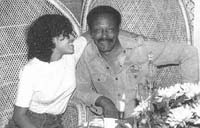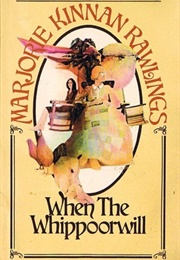

A family of African-American farm-workers, consisting of three brothers (called Big Mat, Melody and Chinatown), their mother, and Hattie, a strong and opinionated woman married to the oldest brother, is struck by tragedy as the mother dies while plowing the fields. You have to be native to the red clay hills of Kentucky to understand that.” We as readers are plunged straight in the middle of a heartbreaking tale of poverty and hunger.

Meanwhile, this is how Blood on the Forge begins: “He never had a craving in him that he couldn’t slick away on his guitar. Read it, dammit, and maybe NYRB can be persuaded to publish Attaway’s debut novel, as well. I’ve never read a novel quite like it, and it feels more knotty and interesting than many more highly praised and well known novels of its era, which is enough reason to recommend it. Blood on the Forge, like Wright’s and fellow realist novelist Upton Sinclair’s work, is very much of its time, and aesthetically it’s hit-and-miss, but the fact is, it’s a damn remarkable book to end one’s career on, and fittingly, it contains enough details, energy and conviction for several more novels.

The rest of his career was spent by writing song-books, songs, and screenplays. When it was published, Attaway was all of 30 years old, and upon finishing it, his desire to create long-form prose narrative seems to have been finished with it. As a novel, there is a lot wrong with it, but as an overall reading experience, it’s a trip worth taking. Despite all this, it’s a novel well worth reading, because Attaway crams it full of ideas and tangents and fragments.

It’s not a perfect book by any means: for a short novel, it has quite a few dull stretches, and oftentimes, its author seems more interested in the story he’s telling and its political and historical contexts than in the telling itself, which is never a good sign. Lucky for us, Blood on the Forge was rescued from oblivion by the invaluable NYRB Classics imprint. His only two novels have deeply sunk into the obscure chasm of American literary history, much less successful than those by contemporaries like African-American novelist Richard Wright. Its author, African-American novelist William Attaway, is perhaps best know today as co-writer of Harry Belafonte’s “ Bananaboat Song“. Blood on the Forge, NYRBīlood on the Forge, originally published in 1941, is an interesting read.


 0 kommentar(er)
0 kommentar(er)
